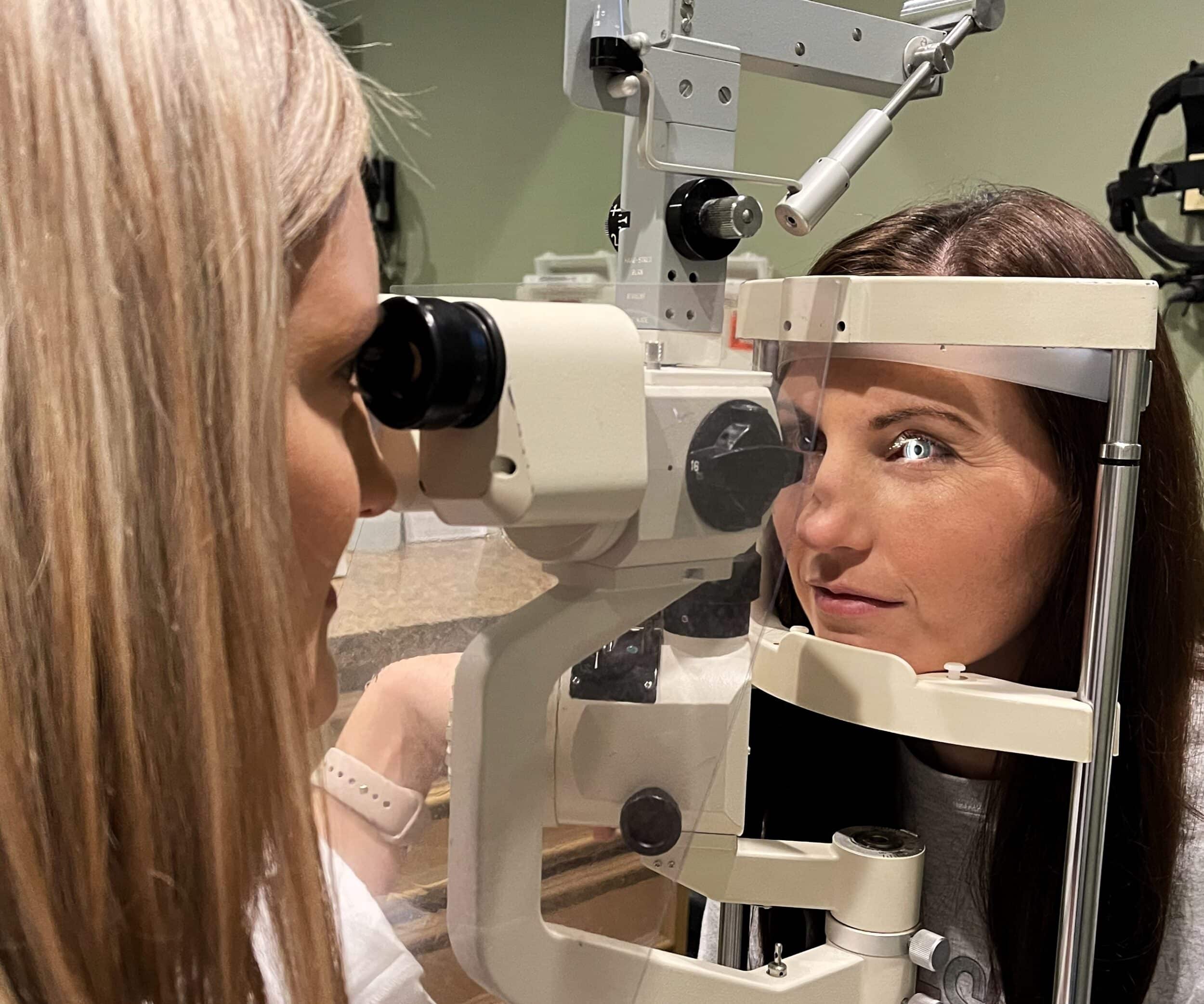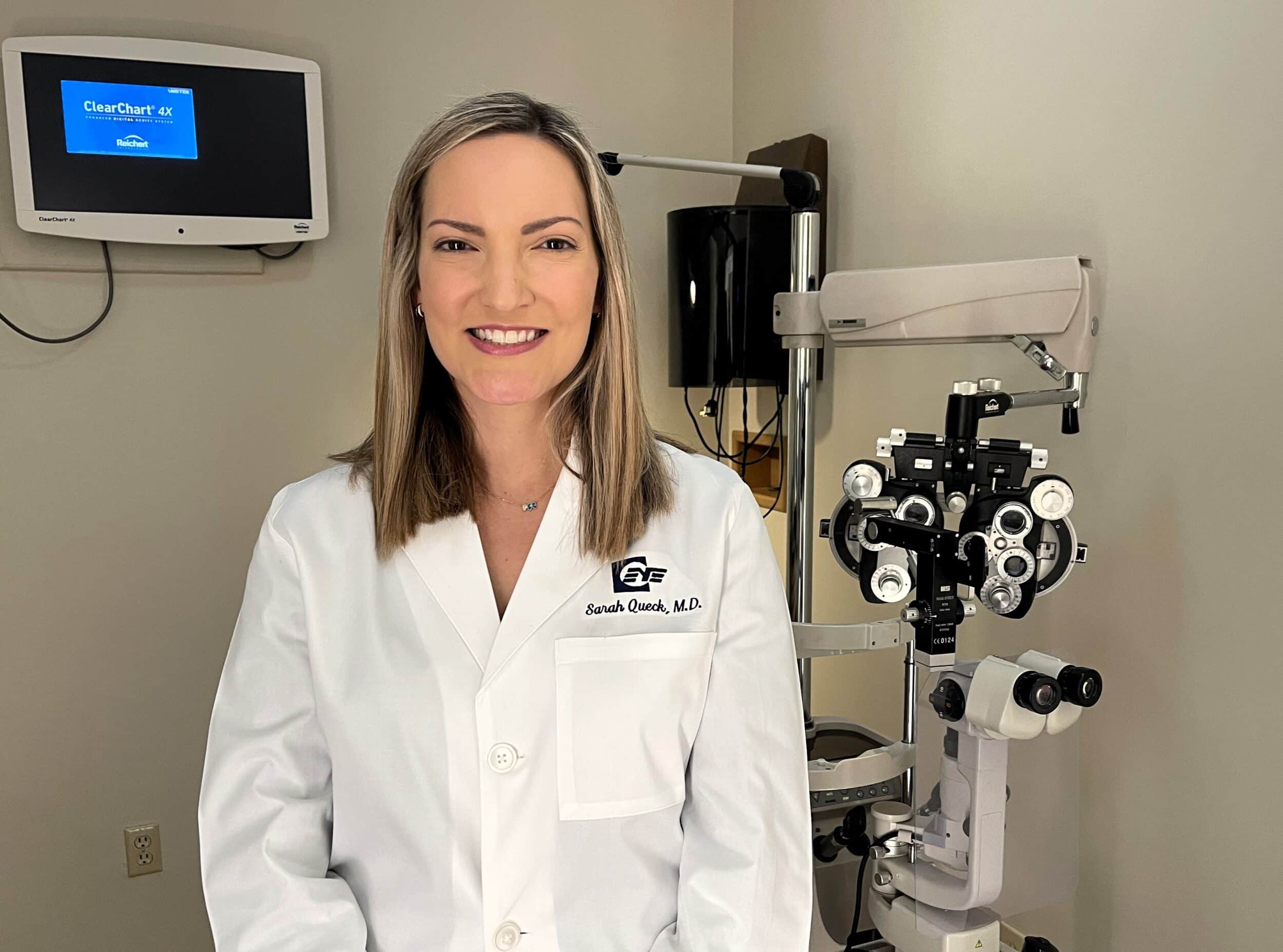
According to a recent United Nations report, the world’s population splits evenly between males and females. In matters of eye health, however, women encounter more problems than men.
To bring awareness to these increased vision risks for women, the Prevent Blindness foundation has signified April as Women’s Eye Health and Safety Month. Eye care providers, including Hattiesburg Eye Clinic, are putting the focus this month on vision challenges women can face.
So, why this disparity between men’s and women’s eye health?
“We don’t entirely know why,” says Dr. Sarah Queck, an ophthalmologist with Hattiesburg Eye Clinic. “But women’s longer life expectancies may be one reason. Since there are more women than men over age 50, more of them are impacted by age-related eye diseases.”
Besides longer lives, Dr. Queck notes that autoimmune diseases, for which women have a higher risk, may also negatively impact eye health. And, hormonal changes at various stages of a woman’s life can influence susceptibility to certain eye conditions.
“Some studies have indicated that estrogen may provide protection against glaucoma,” says Dr. Queck. “A drop in estrogen levels, particularly during menopause, may lead to the greater possibility of optic nerve damage related to this disease.”
These hormonal changes during menopause may also give rise to chronic eye dryness. “Decreased estrogen and progesterone can negatively affect the meibomian and lacrimal glands of the eyelids, glands which play a key role in tear production,” says Dr. Queck. “The eyes may not produce enough tears, and those produced are of such low quality that they evaporate quickly.”
Patients with chronic dry eye can often find relief with measures like artificial tears or prescription drops, oral antibiotics, or punctal (tear duct) plugs to help the eyes retain more fluid. Hattiesburg Eye Clinic also has an exclusive dry eye treatment for Pine Belt patients called Optilight®, a device that relieves dry eye symptoms with light pulses directed at the outer skin below the eyes.
Menopause isn’t the only stage of life where women face challenges to eye health. The surge in hormones during puberty, for example, can spur rapid eye growth that may cause the eyes to elongate, leading possibly to myopia (near-sightedness) or blurred vision.
“A teenager’s corrective prescription can change during this time, so eye exams during and after puberty to catch any changes are important,” says Dr. Queck.
Increased estrogen and progesterone during pregnancy may cause the corneas to retain water, leading to blurred vision or a temporary increase in myopia. And, women who wear contact lenses may find increased dryness and irritation due to these corneal changes.
“Such changes usually revert to the patient’s baseline postpartum once the hormones adjust to normal,” says Dr. Queck.” Sometimes, though, the change in their prescription may be permanent.”
Blurring or seeing dark spots during pregnancy could be a symptom of a serious health condition known as preeclampsia in which the expectant mother’s blood pressure rises dangerously high. “If a pregnant woman notices these kinds of vision problems, she should seek immediate medical attention,” says Dr. Queck.

Dr. Queck also offers some advice for women to protect their eyesight throughout these different phases of their lives.
Regular eye exams. Diseases like glaucoma or age-related macular degeneration rarely show symptoms during early development. Dr. Queck recommends a comprehensive, dilated eye exam every year over age 40—or earlier. “If you have a family history of diseases like glaucoma or macular degeneration, you should begin eye exams in early adulthood. Early detection increases your chances of preserving all or most of your eyesight in the future.”
Eye protection. Besides wearing protective eyewear during high-risk activities like contact sports or construction work, Dr. Queck also advises wearing sunglasses outdoors to block the sun’s ultraviolet rays. “Extended sunlight exposure increases your risk for cataracts or age-related macular degeneration.”
Good lifestyle habits. “Eat a well-balanced diet, including dark leafy green vegetables and certain fruits that contain carotenoids,” says Dr. Queck. She also advises keeping chronic conditions like diabetes or high blood pressure under control and avoid smoking. And, you should also properly maintain contact lenses, replace older eye makeup, and regularly clean makeup brushes to reduce the chance of bacterial eye infections.
Even though women do face higher risks for eye problems, Dr. Queck says such problems aren’t inevitable. By taking these preventative steps, women have a better chance of enjoying healthy vision throughout their lives.
To learn more about eye care and treatments, be sure to visit our website. To find out how Hattiesburg Eye Clinic can improve your vision health, call 601-268-5910 (or toll-free 800-624-8254) or schedule a consultation with us at www.hattiesburgeyeclinic.com/contact-us/


